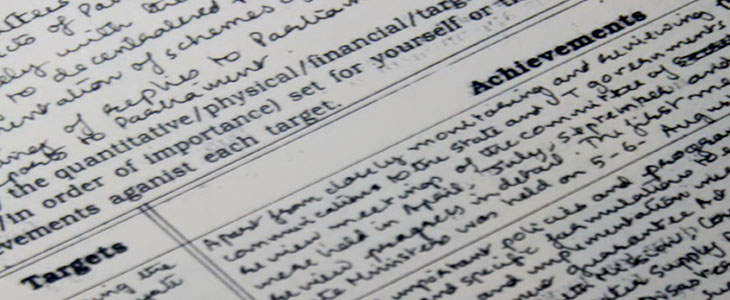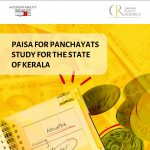
Deciding the Wheat from the Chaff – The Bureaucratic Review Process
16 August 2016
Because there is very little room at the top in the bureaucracy, there has to be a way to select the best for the top job; a way to separate the wheat from the chaff. The most frequently used method is to use the system of ACRs. Equally popular are playing golf (or joining golf clubs where your boss plays) and organising temple tours. But more of that later; let me focus on the ACR system.
The ACR stands for the ‘Annual Confidential Report’. This is as is obvious, an annual, confidential appraisal of an officer’s capabilities by his or her bosses. Since bureaucracies are organised in elaborate hierarchies, each appraisal comprises of three steps. One’s immediate boss initiates the report and is known as the reporting authority. The next level is that of the officer who reviews the report of the reporting officer. This level is known as the reviewing authority. However, since the system is deeply distrustful on anything said about anybody, whether good or bad, there is an accepting authority at the top of the pile. After its arduous journey through these three levels, the ACR, in the case of IAS officers, ends its journey in the office of the Chief Secretary of the State where the officer works, and with the Department of Personnel at the Government of India.
Invariably, the onus is on the officer concerned to start the process of having his appraisal done. In earlier, more irresponsible times, the format in which the ACR was written was vague and capable of variable interpretation. The officer concerned was required to mention his name, his current responsibility and how long he was holding it. A few more terse questions, such as whether he enjoyed good health, and whether he had undergone any training during the year under appraisal, and the ACR was set on its way. Since then, the ACR has undergone several changes. Now, the officer is required to mention six to eight thrust areas of his work and give a self-appraisal of how she has functioned over the year in respect of key, relevant targets. She is also required to give an honest appraisal of constraints that she faced, in not achieving set targets.
The rules also say that one has to speak to one’s boss in advance and fix targets to be achieved before the year commences. That never happened in my time and I am given to understand, does not happen now.
Writing a self appraisal is an art. I did it meticulously, and did it in the finest calligraphy that I could muster; I am sure my effort would have drawn gasps of admiration from those engaged in writing entire Qurans into books the size of matchboxes. I drew neat lines in red ink to separate one target from the other, and embellished my achievements with numbers. I also developed the fine art of making my non-achievement of targets also look like success in the face of adversity. There were always some large calamities that one could draw upon to justify one’s lack of success (“I planted 1,28,000 saplings but 2460 survived, because the rest were washed away by Hurricane Katrina” – you get the idea).
Once the ACR is set on its journey, the reporting officer has to task of sieving through your subterfuge and boasts, to get at the root of what exactly you have been up to. The first question that is asked of your boss is whether he or she agrees with the targets and the achievements attained. This often catches the boss on the wrong foot, because he knows he did not discuss the fixation of those targets with you at the start of the year (just as she did not discuss her targets with her boss). So, therefore, calligraphy or not, you are likely to get the nod on the targets and achievements you’ve reported.
Then comes a lot of very subjective questions; does the officer show initiative? Does he get along with his colleagues? Is he capable and good at teamwork? How is his oral and written communication? While these questions provide ample scope for the reporting officer to air her literary talents, this is rarely the case. CRs are often written by reporting officers in a terse style. I put it down to the fact that as officers get senior, most of them begin to resemble more and more, in their manner, demeanour and articulation, a government circular come to life.
‘Once they have crossed twenty years of seniority’, a boss of mine well versed in these matters told me, ‘nobody reads anything, except the civil list and the railway time table’. Replace the latter with airline schedules and you get the general picture.
Then comes the icing on the cake; the question on the integrity of the officer concerned. It stands to reason that if you have agreed with the officer’s achievement on his stated targets (which you are barred from questioning) and if you have written some wishy washy stuff on his team-spirit, initiative and communications, you might find it very difficult to write anything more than ho-hum stuff in the integrity column. You might also not want to write paeans to his honesty here; if he is exposed in a scam later, you will have egg on your face. So, in the circumstances, the accepted bland phrase to use is as follows:
“Beyond reproach”.
However, I have seen some strange comments in the ‘integrity column’. One said that the officer concerned was ‘fully integrated’. Was he a mathematical equation? I wondered.
The best of course, was the one by a sly reporting officer who wrote in the integrity column, ‘the officer, Mr. ……., sometimes conducts experiments with the truth’.





